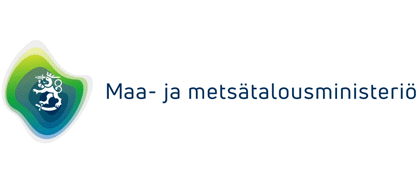Valitse kieli:
This page is in Finnish. Go to the English site »
Or choose language:
Den här sidan är på finska. Gå till den svenska versionen av sidan »
Eller välj språk:
Dát siidu lea suomagillii. Sirdás davvisámegielat siidduide »
Dahje vállje giela:
Язык этого сайта финский. Перейти на русскоязычный сайт »
Или выберите язык:
Cette page est en finnois. Aller sur le site en français »
Ou choisir la langue:
Diese Seite ist auf Finnisch. Wechseln Sie zur deutschen Version »
Oder wählen Sie Ihre Sprache:
Tämä sivu on englanniksi. Siirry suomenkieliseen sivustoon »
Tai valitse kieli:
Choose language:
Den här sidan är på engelska. Gå till den svenska versionen av sidan »
Eller välj språk:
Язык этого сайта английский. Перейти на русскоязычный сайт »
Или выберите язык:
Dát siidu lea eŋgelasgillii. Sirdás davvisámegielat siidduide »
Dahje vállje giela:
Cette page est en anglais. Aller sur le site en français »
Ou choisir la langue:
Diese Seite ist auf Englisch. Wechseln Sie zur deutschen Version »
Oder wählen Sie Ihre Sprache:
Tämä sivu on ruotsiksi. Siirry suomenkieliseen sivustoon »
Tai valitse kieli:
This page is in Swedish. Go to the English site »
Or choose language:
Välj språk:
Язык этого сайта шведский. Перейти на русскоязычный сайт »
Или выберите язык:
Dát siidu lea eŋgelasgillii. Sirdás davvisámegielat siidduide »
Dahje vállje giela:
Cette page est en suédois. Aller sur le site en français »
Ou choisir la langue:
Diese Seite ist auf Schwedisch. Wechseln Sie zur deutschen Version »
Oder wählen Sie Ihre Sprache:
Tämä sivu on pohjois-saameksi. Siirry suomenkieliseen sivustoon »
Tai valitse kieli:
This page is in North Saami. Go to the English site »
Or choose language:
Den här sidan är på nordsamiska. Gå till den svenska versionen av sidan »
Eller välj språk:
Язык этого сайта северосаамский. Перейти на русскоязычный сайт »
Или выберите язык:
Vállje giela:
Cette page est en same du Nord. Aller sur le site en français »
Ou choisir la langue:
Diese Seite ist auf Nordsamisch. Wechseln Sie zur deutschen Version »
Oder wählen Sie Ihre Sprache:
Tämä sivu on venäjäksi. Siirry suomenkieliseen sivustoon »
Tai valitse kieli:
This page is in Russian. Go to the English site »
Or choose language:
Den här sidan är på ryska. Gå till den svenska versionen av sidan »
Eller välj språk:
Dát siidu lea ruoššagillii. Sirdás davvisámegielat siidduide »
Dahje vállje giela:
выберите язык:
Cette page est en russe. Aller sur le site en français »
Ou choisir la langue:
Diese Seite ist auf Russisch. Wechseln Sie zur deutschen Version »
Oder wählen Sie Ihre Sprache:
Tämä sivu on ranskaksi. Siirry suomenkieliseen sivustoon »
Tai valitse kieli:
This page is in French. Go to the English site »
Or choose language:
Den här sidan är på franska. Gå till den svenska versionen av sidan »
Eller välj språk:
Dát siidu lea fránskkagillii. Sirdás davvisámegielat siidduide »
Dahje vállje giela:
Язык этого сайта французский. Перейти на русскоязычный сайт »
Или выберите язык:
Choisir la langue:
Diese Seite ist auf Französisch. Wechseln Sie zur deutschen Version »
Oder wählen Sie Ihre Sprache:
Tämä sivu on saksaksi. Siirry suomenkieliseen sivustoon »
Tai valitse kieli:
This page is in German. Go to the English site »
Or choose language:
Den här sidan är på tyska. Gå till den svenska versionen av sidan »
Eller välj språk:
Язык этого сайта немецкий. Перейти на русскоязычный сайт »
Или выберите язык:
Cette page est en allemand. Aller sur le site en français »
Ou choisir la langue:
Wählen Sie Ihre Sprache:
